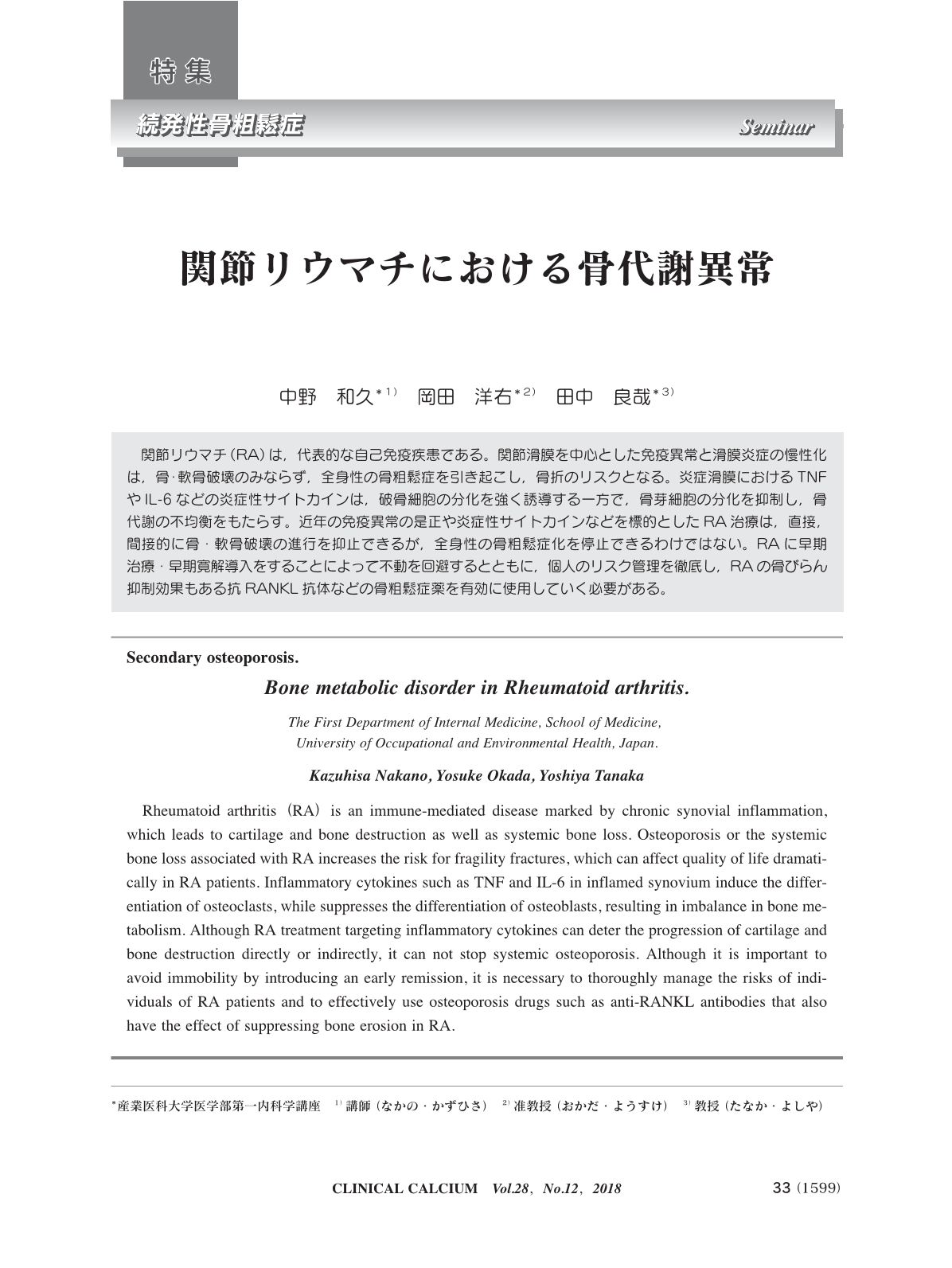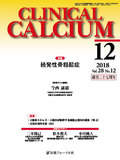Japanese
English
- 有料閲覧
- Abstract 文献概要
- 1ページ目 Look Inside
- 参考文献 Reference
関節リウマチ(RA)は,代表的な自己免疫疾患である。関節滑膜を中心とした免疫異常と滑膜炎症の慢性化は,骨・軟骨破壊のみならず,全身性の骨粗鬆症を引き起こし,骨折のリスクとなる。炎症滑膜におけるTNFやIL-6などの炎症性サイトカインは,破骨細胞の分化を強く誘導する一方で,骨芽細胞の分化を抑制し,骨代謝の不均衡をもたらす。近年の免疫異常の是正や炎症性サイトカインなどを標的としたRA治療は,直接,間接的に骨・軟骨破壊の進行を抑止できるが,全身性の骨粗鬆症化を停止できるわけではない。RAに早期治療・早期寛解導入をすることによって不動を回避するとともに,個人のリスク管理を徹底し,RAの骨びらん抑制効果もある抗RANKL抗体などの骨粗鬆症薬を有効に使用していく必要がある。
Rheumatoid arthritis(RA)is an immune-mediated disease marked by chronic synovial inflammation, which leads to cartilage and bone destruction as well as systemic bone loss. Osteoporosis or the systemic bone loss associated with RA increases the risk for fragility fractures, which can affect quality of life dramatically in RA patients. Inflammatory cytokines such as TNF and IL-6 in inflamed synovium induce the differentiation of osteoclasts, while suppresses the differentiation of osteoblasts, resulting in imbalance in bone metabolism. Although RA treatment targeting inflammatory cytokines can deter the progression of cartilage and bone destruction directly or indirectly, it can not stop systemic osteoporosis. Although it is important to avoid immobility by introducing an early remission, it is necessary to thoroughly manage the risks of individuals of RA patients and to effectively use osteoporosis drugs such as anti-RANKL antibodies that also have the effect of suppressing bone erosion in RA.



